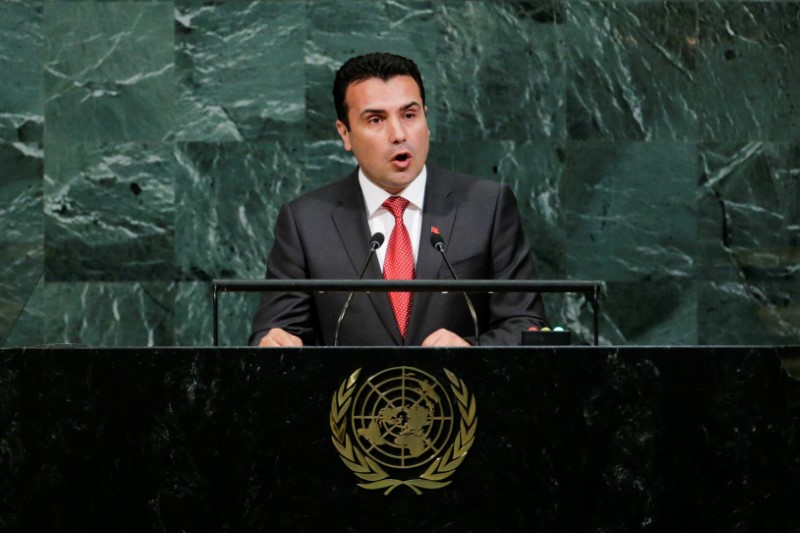Investing.com’s stocks of the week
SKOPJE - Macedonia's parliament has adopted a 2018 draft budget, lowering the deficit to 2.7 percent of national output from 2.9 this year and forecasting growth of 3.2 percent.
The budget, totaling 221.7 billion denars ($4.28 billion) and adopted late on Friday, allocated spending equivalent to about 400 million euros ($474.28 million) for capital investment, while average annual inflation was expected to be 1.7 percent. Revenues were forecast at 193.5 billion denars.
The main opposition VMRO-DPMNE party boycotted the budget vote in protest at the arrest of a former interior minister, several lawmakers and political activists on charges related to violence in parliament in April, which pushed the nation into a political crisis.
Macedonia's central bank revised its economic growth forecast for 2017 down to 0.5 percent from 2.5 percent, citing a poor economic performance in the first half of the year because of political instability.
Macedonia's two-year crisis over a wiretapping scandal that toppled the government of nationalist Prime Minister Nikola Gruevski, ended in June with the appointment of a pro-Western government of the Social Democrat Prime Minister Zoran Zaev.
Finance Minister Dragan Tevdovski told parliament that the government planned to finance the deficit through a combination of domestic and foreign loans.
"The borrowing abroad may be done through a Eurobond or favorable foreign loans," Tevdovski said.
The economy of the landlocked Balkan country grew by 2.4 percent in 2016 but national output contracted 1.9 percent in the second quarter of 2017, the first decline since 2012.
Macedonia, which won independence from former Yugoslavia in 1991, has made little progress towards membership of the European Union and the NATO alliance due to a name dispute with Greece.
($1 = 0.8434 euros)
